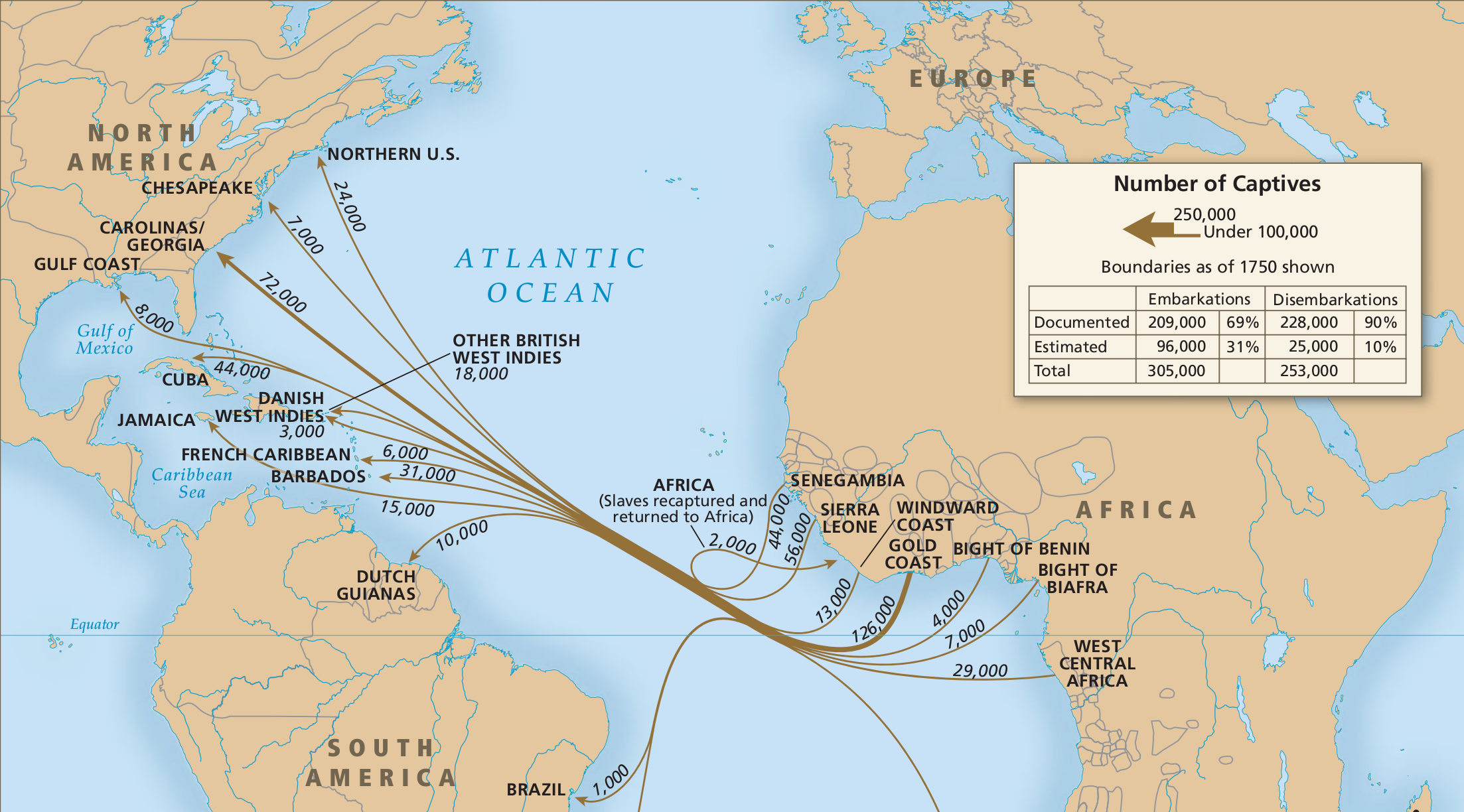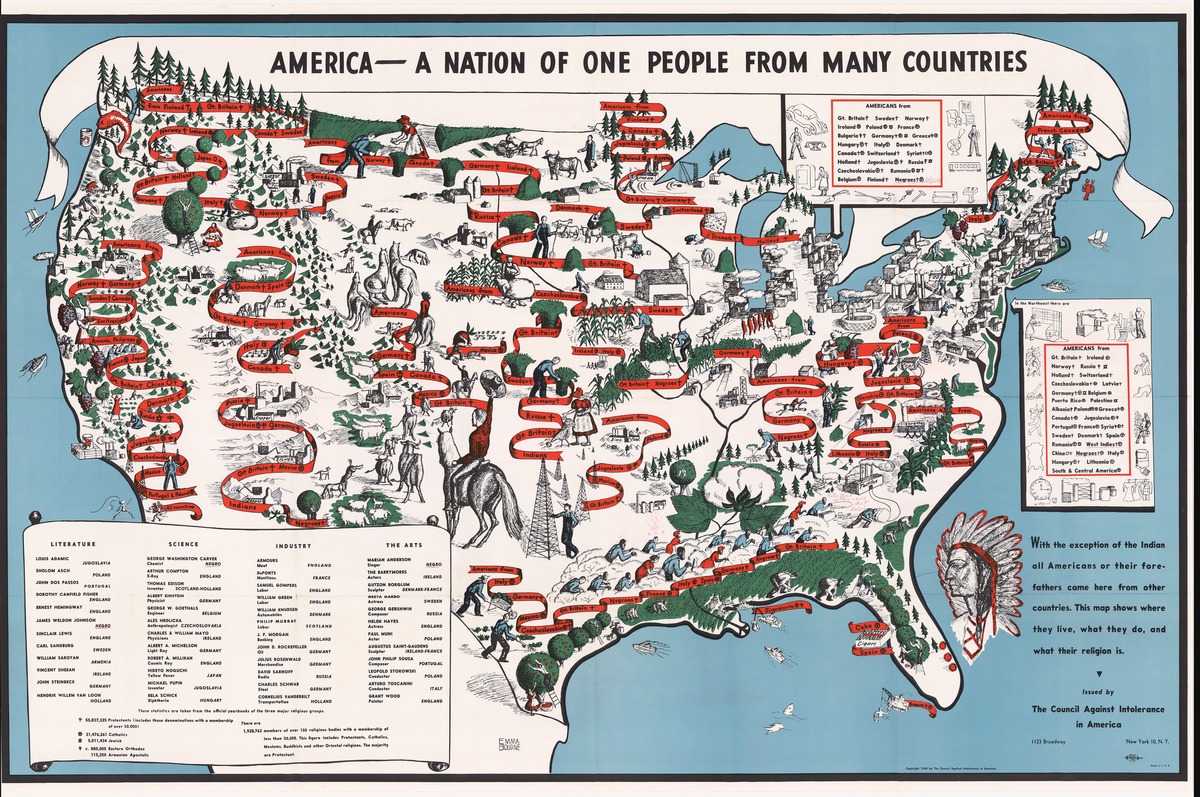Between 1650 and 1860, approximately 10 to 15 million people were enslaved and transported form Western Africa to the Americas. Of those transported, roughly 2 million died at sea.
Arabic Involvement - The Trans Saharan Slave Trade
Settlement by Ethnic Group U.S.A. 1755
Distribution of enslaved African Americans in 1850
Domestic Slave Trade
Between 1790 and 1860, 835,000 slaves were moved from Maryland, Virginia, and the Carolinas to Alabama, Mississippi, Louisiana, and Texas.
Domestic Slave Escape Routes
/https://public-media.si-cdn.com/filer/71/42/71424d2d-631d-428c-b54f-0623594831ed/hergesheimer-map.png)




